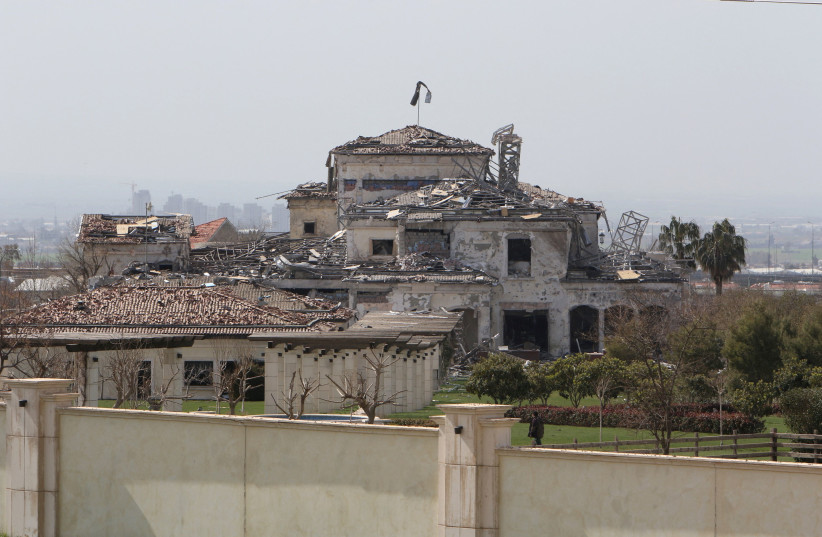Iraq's gas, oil deals with UAE and China mean more energy independence from Iran

Despite being rich in oil and gas fields, Iraq has been importing most of its gas from Iran, placing it in a risky economic and security situation.
Iraq has signed energy deals with Emirati and Chinese companies for the development of six different gas and oil fields spread throughout the country in what appears to be a bid to become more self-sufficient and benefit from its own natural resources instead of importing most of its gas from neighboring Iran.
The UAE-based Crescent Petroleum company is one of the enterprises that signed a deal with Baghdad on Tuesday. It finalized three 20-year agreements with Iraq’s Ministry of Oil to develop and produce oil and gas from two fields in Diyala governorate and one field in Basra governorate.
“The agreements will deliver much-needed natural gas to fuel nearby power plants and improve government services, creating thousands of new jobs in Diyala and Basra,” Crescent Petroleum said in a statement on Tuesday.
Iraq also signed two contracts with China’s Geo-Jade company to develop the Huwaiza and Naft Khana fields located along the country’s border with Iran, and United Energy Group Ltd, another Chinese company, signed a deal to develop the Sindbad oil field near the southern city of Basra.
Iraq's reliance on Iranian gas

Despite having one of the largest oil reserves in the world, and standing in 12th place for gas reserves, Iraq imports some 40% of the gas that it uses from Iran, using it mainly to produce electricity.
This, according to Dr. Thomas O'Donnell, a global fellow of the Woodrow Wilson Center in Washington who teaches in Berlin, brings Baghdad both security and financial problems.
Iraq’s purchase of such a vast percentage of its gas from Iran "poses a major security problem that is very similar to the security problem that Germany and the EU had by relying on Russian gas," O'Donnell, an expert in energy and geopolitics, told The Media Line.
In addition, it puts Iraq in a financial deficit. "They are paying a lot of money to import gas from Iran," he said.
Iraq has a struggling economy with its currency dropping to a new low that is close to the value of the Iraqi dinar in the first months after the overthrow of Saddam Hussein; it also has suffered due to the discrepancy in the price of the dollar between the central bank and the black market.
According to Iraq's Oil Minister Hayan Abdul-Ghani, the country expects to produce about 800 million standard cubic feet per day of natural gas as a result of the deals signed this week with Emirati and Chinese companies.
"It would bring a huge financial advantage, as they will not have to pay that money out [to Iran], and a security advantage, as they will be more independent from Iran," said O'Donnell.
Dr. Ramu C.M, a Berlin-based consultant on energy and international politics, says that Iraq's oil industry has a serious issue of endemic corruption both in its regional and federal segments.
"Every multinational oil company and oil service provider has struggled over the years to enter into deals with the convoluted bureaucratic tiers of Iraq’s Oil Ministry. The only way to circumvent such bureaucratic hurdles is to pay huge bribes and kickbacks," he told The Media Line.
He notes that the new constitution drafted by the Iraqi government after the 2003 US invasion helped revive Iraq’s oil production and exports. But it also created an inefficient and tangled politico-bureaucratic system "tainted by inefficiency and cronyism," he said.
This together with the government's inability to pay public employees, which led to several strikes among the workers in the oil and gas industry, has led the country to remain in a situation of under-production.
O'Donnell says that this under-production is a product of a combination of things. One is a matter of governance which, he explained, is tied to corruption and the country's political instability in recent years.
"It is a matter of the government getting serious and putting the effort into this, tamping down maladministration and corruption. It is simply getting the job done," he said adding that the Iraqi government has promised to do this a number of times to one American president after the other.
O'Donnell believes that the current Iraqi administration, led by Prime Minister Mohammed Shia' al Sudani, might be more effective, politically speaking, than other administrations in the past.
Also, he argues that producing gas and oil is at this point getting to be an existential need for Iraq’s budget. "The amount of money that they are spending, basically giving it to Iran, might have lit a fire under the administration for it to get serious about it," he concluded.
Jerusalem Post Store
`; document.getElementById("linkPremium").innerHTML = cont; var divWithLink = document.getElementById("premium-link"); if (divWithLink !== null && divWithLink !== 'undefined') { divWithLink.style.border = "solid 1px #cb0f3e"; divWithLink.style.textAlign = "center"; divWithLink.style.marginBottom = "15px"; divWithLink.style.marginTop = "15px"; divWithLink.style.width = "100%"; divWithLink.style.backgroundColor = "#122952"; divWithLink.style.color = "#ffffff"; divWithLink.style.lineHeight = "1.5"; } } (function (v, i) { });
